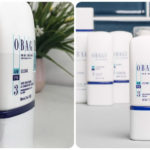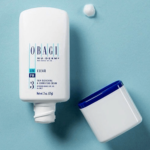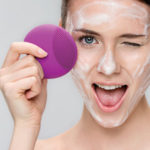As we age, our skin goes through a natural aging process. There are specific signs that indicate our skin is entering the aging phase. Here are 6 signs that indicate skin aging and how to address them:
1. Dull complexion
The skin loses its brightness and radiance, possibly due to the declining skin turnover process. You need to maintain a healthy diet and provide enough vitamins and antioxidants to your skin. Use skincare products that contain ingredients like vitamin C and retinol to help brighten the skin.

2. Dark spots, patches
Dark spots and patches often appear due to the UV rays. You should use sunscreen with a high sun protection factor, wear a hat and sunglasses when going out. In addition, you can use brightening skincare products that contain ingredients like glycolic acid, salicylic acid, or hydroquinone to make the skin brighter.
3. Lack of firmness, sagging
Lack of firmness and sagging skin are also signs of aging. You should choose products that contain collagen, elastin, and peptides. These ingredients can increase the elasticity of the skin and minimize sagging.
4. Weak, slow-healing skin
To address this issue, you should enhance the supply of nutrients to the skin by consuming a diet rich in vitamins and minerals. Supplementing collagen and antioxidants can also help strengthen the skin’s regenerative process.

5. Enlarged pores
Cleanse the skin thoroughly on a daily basis to remove dirt and impurities. Use products that contain salicylic acid or retinol to help tighten pores and reduce their size. Also, limit the use of oil-based cosmetics.
6. Sensitive, easily irritated skin
Sensitive and easily irritated skin is a common issue when it comes to aging skin. To care for sensitive skin, avoid using products with fragrances, irritants, alcohol, and parabens. Also, ensure to maintain the skin’s moisture by using appropriate moisturizers.
The key is to maintain a regular skincare routine, including using suitable skincare products and maintaining a healthy lifestyle. Ensuring daily skincare habits is essential.
5 Tips on How to Maximize the Benefits of Obagi Nuderm Fx for Balanced Skin Tone
Unveil the secrets for unlocking the full potential of Obagi Nu-derm Fx, the specialized skin care range created to tackle the visible effects of aging! Identify how this anti-aging range can help lighten dark spots and reduce the appearance of wrinkles with the guidance provided in this helpful article.
4 Tips to Prevent Sagging Skin with Facial Cleanser Use
Are you considering using a facial cleansing device to maintain a healthy skin regimen? Before taking the plunge, it is important to understand the potential risks associated with their use, such as the possibility of skin sagging. To help you make the most out of your facial cleansing device, we’ve put together 4 tips that will help you maintain the integrity of your skin’s health.



































